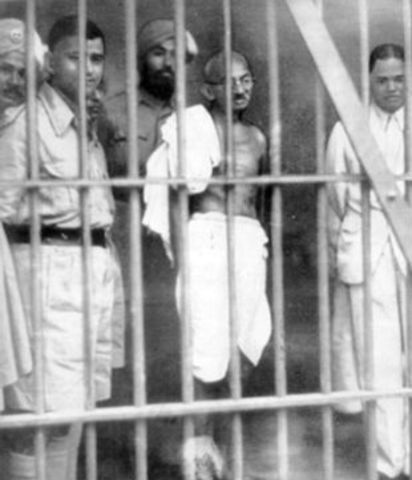Norman Finkelstein, What Gandhi Says About Nonviolence, Resistance, and Courage
OR Books, 2012
Norman Finkelstein is working on a new book on the subject of “cancel culture.” Long before the phrase attained recent prominence, Finkelstein himself was “cancelled.” I was reminded of this when listening earlier today to a lively dialogue with members of This Is Revolution podcast with Norm, and I thought back to his own treatment of Gandhi. Some might champion cancelling the “Mahatma” because of one or another moral failing. Yet in his book, Norm exemplifies both a healthy critical and appreciative engagement with the Indian proponent of satyagraha.
Indeed, he states early on that he is “convinced that Gandhi has important things to say on the subject of nonviolent resistance, from which even the most resolute secularist would greatly benefit, and that the content of his doctrine can be accessed by reason and made accessible to the rational mind.”
For example, one aspect of Gandhi’s philosophy, the necessity of self-suffering, elicits the following — “[Such] will not pierce the emotional armor of wrongdoers who are convinced, either due to inimical interest or inimical ideology or, what’s often the case, both conjoined, that the demands of the victim lack justice…. Self-suffering might move a loved one to mend his ways. It might also awaken the conscience of a public otherwise passive in the face of injustice. But as a rule it will not deter persons driven by righteous fury and defending perceived interests. Only a Gandhi could possess such overpowering spiritual force; it loved and died with his person. This was his great personal triumph, but also his great political failure. The tactic has no generalized value.” And near the end of his succinct study, Norm avows, “If a criticism is to be leveled against Gandhi’s nonviolence, it is that he sets the bar of courage too high for most mortals to vault.”
In a stirring conclusion to a 2008 talk in the Netherlands on the relevance of Gandhi to resolving the Israel-Palestine issue, Norm said, “The Caribbean poet Aimé Césaire once wrote, ‘There’s room for everyone at the rendezvous of victory.’ Late in life, when his political horizons broadened out, Edward Said would often quote this line. We should make it our credo as well. We want to nurture a movement, not hatch a cult. The victory to which we aspire is inclusive, not exclusive; it is not at anyone’s expense. It is to be victorious without vanquishing. No one is a loser, and we all are gainers if together we stand by truth and justice. “I am not anti-English; I am not anti-British; I am not anti-any government,” Gandhi insisted, “but I am anti-untruth—anti-humbug, and anti-injustice.”
